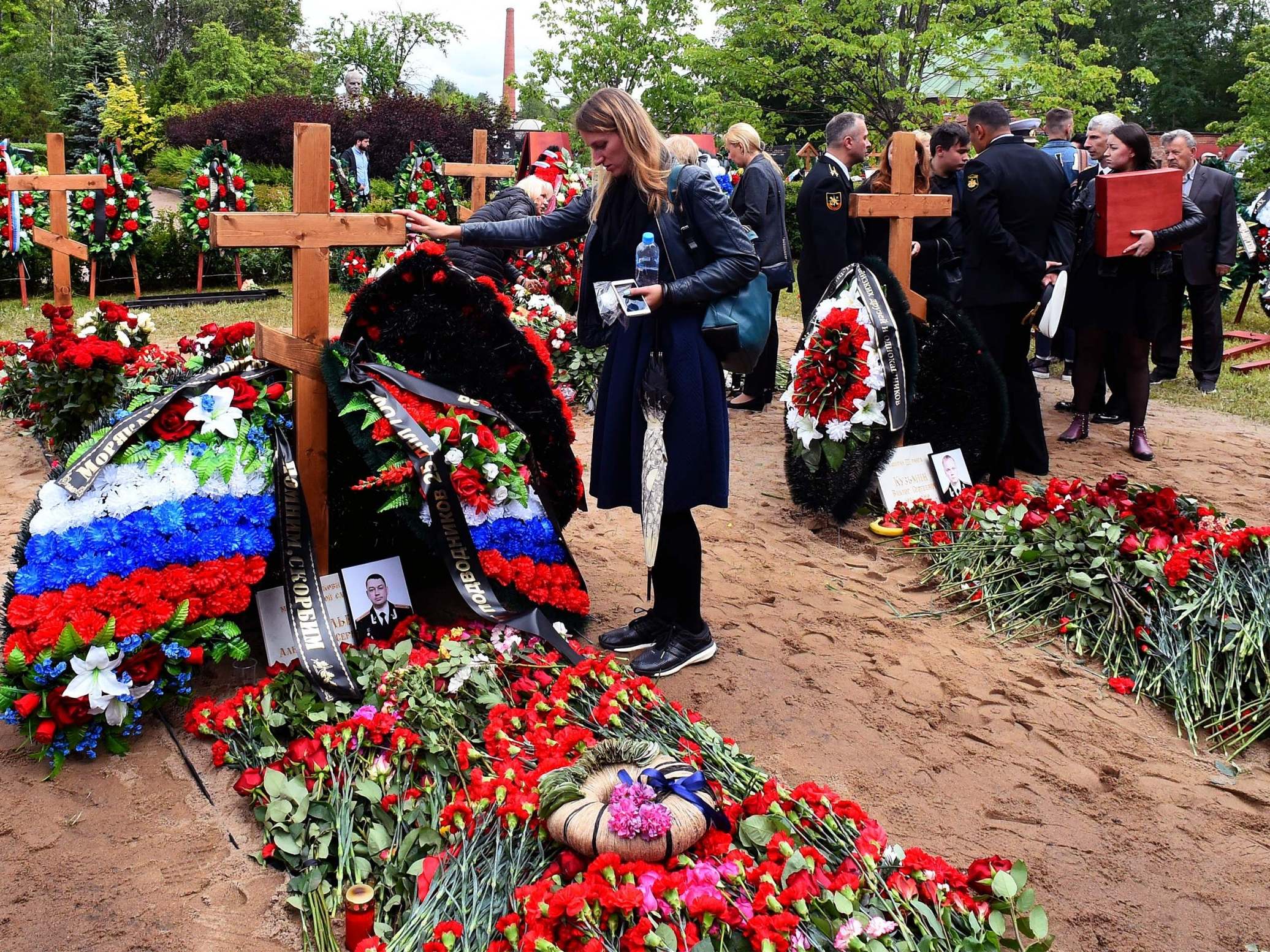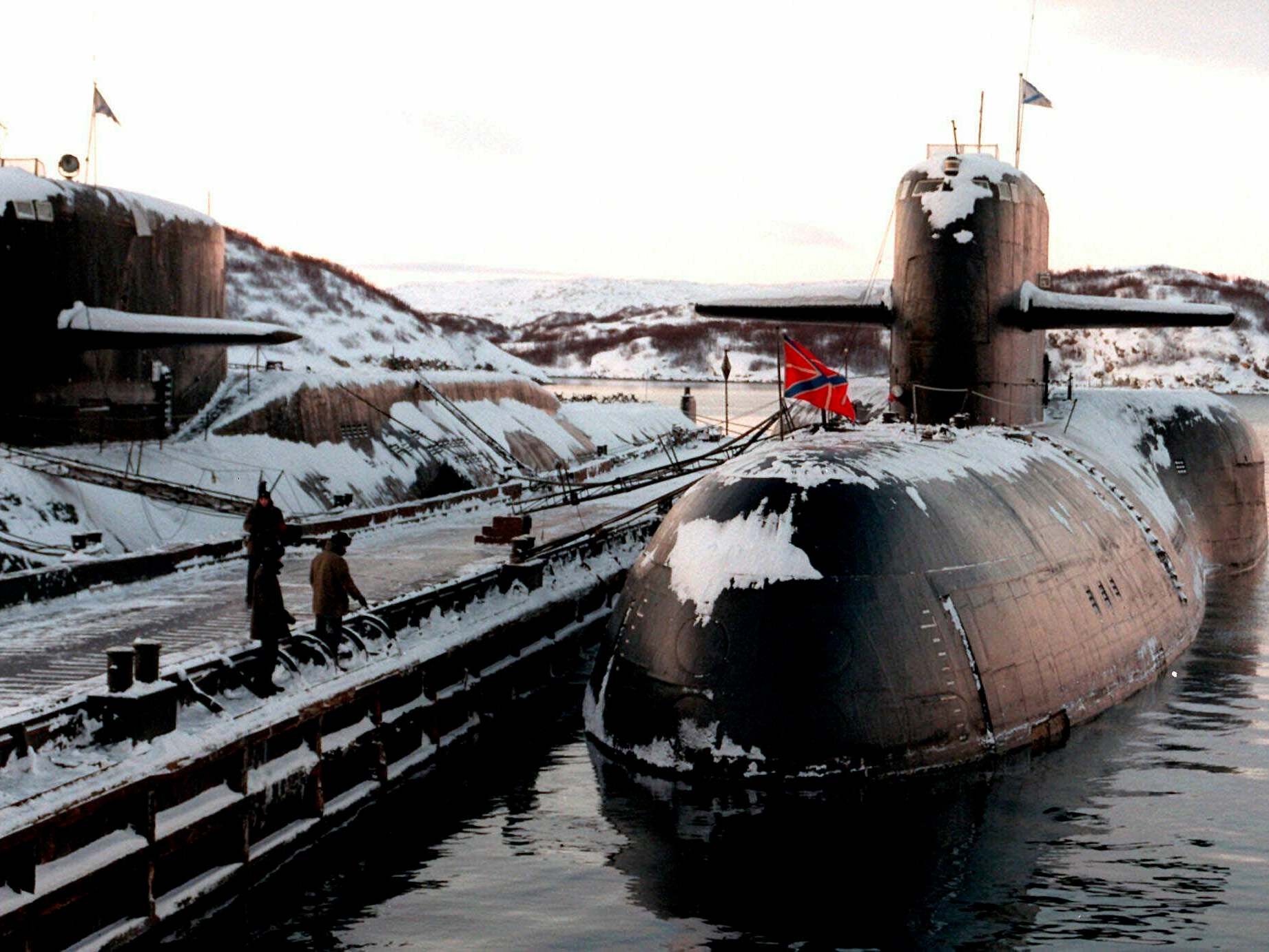Russian servicemen ‘averted planetary catastrophe’ during nuclear submarine accident, military official claims at funeral
Kremlin refuses to reveal mission of vessel, citing state secrets
Families of the 14 Russian servicemen who were killed after a fire broke out on a nuclear submarine have reportedly been told that their relatives averted a “planetary catastrophe” before they died.
A high-ranking military official is said to have made the comment at a funeral for the crew in St Petersburgh days after the accident in the Barents Sea earlier this week.
The incident remains shrouded in mystery after the Russian government refused to reveal the submarine’s name and its mission, claiming them as state secrets.
However, the Kremlin has said the accident was sparked by a fire in the battery compartment of the submarine.
Defence minister Sergei Shoigu said earlier this week that the onboard nuclear reactor was “operational” after the crew took “necessary measures” to protect it.
His deputy Andrei Kartapolov also claimed the “hero” submariners sealed a hatch to contain the blaze.
The Kremlin has not revealed what exactly occurred, or whether a major incident was averted by the servicemen’s actions.
Paying tribute to the crew at the memorial, the unnamed military official said the submariners had prevented a much bigger tragedy, Russian news outlet Open Media reported.

“Today we are seeing off the crew of a research deep water apparatus, who died while performing a combat mission in the cold waters of the Barents Sea. Fourteen dead, 14 lives,” he is quoted as saying. “At the cost of their lives, they saved the lives of their comrades, saved the ship, did not allow a planetary catastrophe.”
The Independent was unable to verify the comments, which did not elaborate on the cause of the accident or how disaster was averted.
Several sources have identified the vessel as the A-31, or the Losharik submersible; a nuclear-powered unarmed vessel capable of deep sea missions.
Its exact design is shrouded in secrecy, but it is believed to be an experimental 70m-long craft operating in conjunction with a larger mothership submarine. Developed over 15 years, beginning in 1988, it is described as the Russian military’s most advanced deep water vessel.
Some descriptions suggest that it is associated with maritime special forces missions, including spying on ocean-bed cables. It is thought to be capable of diving to depths of up to 6,000m.
Local news agency Severpost reported that the smaller submarine was likely tethered to the larger Podmoskovye atomic submarine when it emerged from the Barents Sea at the mouth of the Kola Bay.
Citing an unnamed fisherman, the publication claimed the submarine was travelling quickly back towards base, but without obvious signs of distress.

What remains unclear is how many of the servicemen survived the initial incident, and how many died on the way to hospital.
Reports that five crew members were receiving treatment in a military hospital in Severomorsk were confirmed by Mr Shoigu.
The ministry of defence later named the 14 dead. Calling them ”Heroes of Russia”, it said they were called Denis Dolonsky and Nikolai Filin; first-rank captains Vladimir Abankin, Denis Oparin, Andrei Voskresensky, Konstantin Somov and Konstantin Ivanov; second-rank captains Alexander Avdonin, Alexander Vasilyev, Sergei Danilchenko and Dmitry Solovyev; third-rank captains Viktor Kuzmin and Vladimir Sukhinichev; and captain lieutenant Mikhail Dubkov.
They were buried in Serafimov cemetery near the monument for the 118 Russian killed when the Kursk nuclear submarine sank in 2000, the year Vladimir Putin became president.
Join our commenting forum
Join thought-provoking conversations, follow other Independent readers and see their replies
Comments
Bookmark popover
Removed from bookmarks